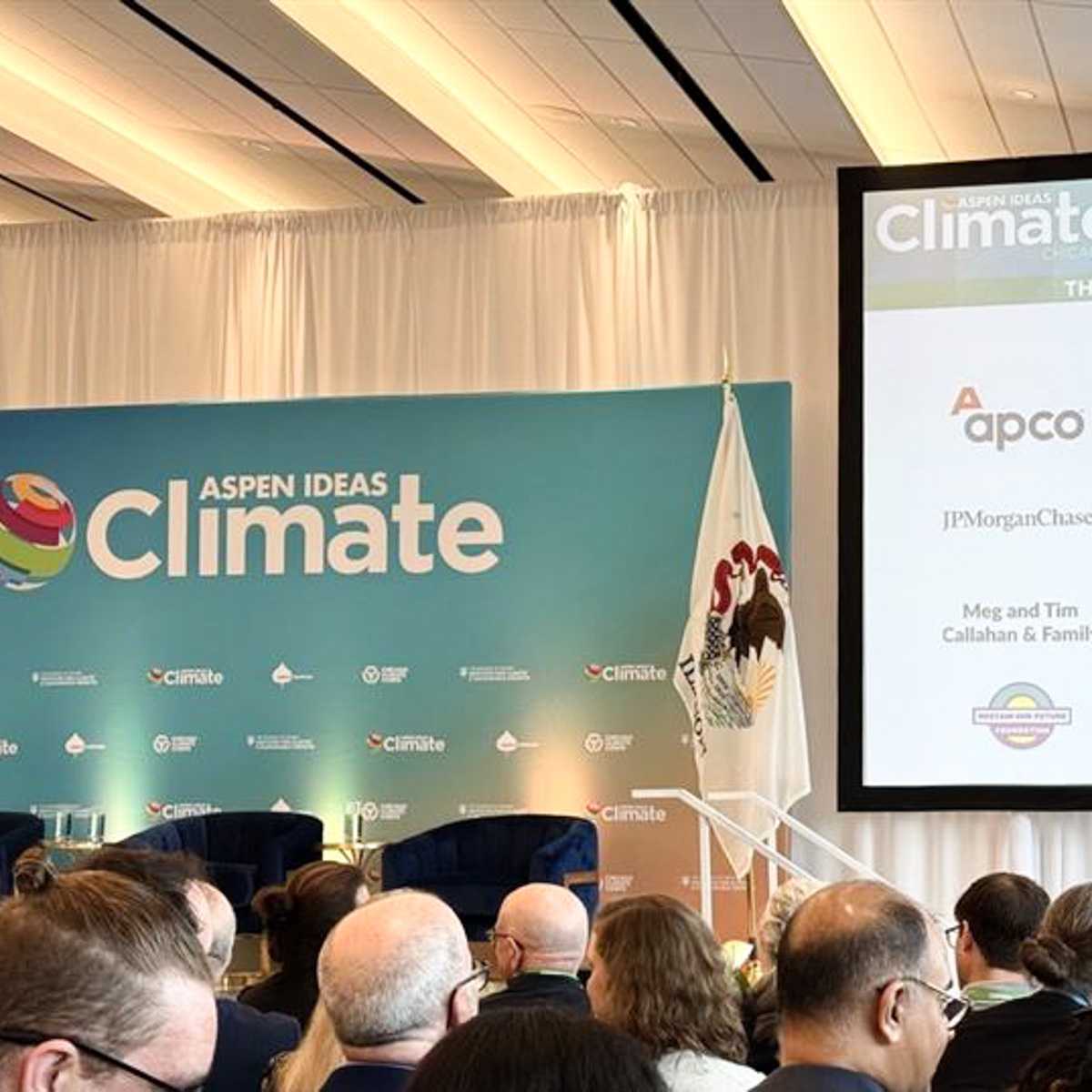
Breaking the Climate Silo: Key Takeaways from Aspen Ideas: Climate 2025
August 27, 2025
When corporate leaders hear “climate conference,” their instinct is often to send the sustainability lead. But Aspen Ideas: Climate 2025 made one thing clear: climate action can’t live in a silo. The impacts of climate change touch every industry from supply chains and insurance to biotechnology, energy access and agriculture and every organizational structure. And just as leading companies are integrating environmental, social and governance (ESG) into core business strategy and enterprise risk, climate solutions must be cross-sectoral, commercially viable and politically savvy.
As a sponsor of the event, APCO brought a cross-functional delegation to Chicago, representing expertise in tech, agriculture and food, energy, geopolitics and infrastructure. Each attendee left with a distinct “aha” moment, reinforcing the need for multi-sector collaboration to drive meaningful progress. Here are some of their observations:
One of the most urgent themes was the recalibration of climate finance. With federal incentives like the One Big Beautiful Bill Act’s (OBBA) tax credit cuts reshaping the landscape, private equity and institutional investors are shifting focus toward scalable technologies that can thrive without government support. Commercially oriented financing strategies are essential to scaling climate solutions. Investors are prioritizing clearer regulations and stronger financial instruments, while the private sector is expected to respond with strategic capital deployment that drives both climate impact and financial performance.
The conference emphasized a pragmatic truth: waiting for perfect policy is a luxury we can’t afford. Markets are adapting and innovating regardless of shifting political regimes. While clear, supportive regulation is vital for long-term investment, the private sector must lead with confidence in clean energy solutions that can weather political and economic shifts.
Climate isn’t just a technological or environmental issue. It’s a governance challenge. Managing risk, equity and infrastructure requires political will as much as innovation. Cities like Chicago, where aligned leadership has removed barriers to policy implementation, are accelerating change and offering models for others to follow.
Bipartisan momentum is also emerging where climate resilience is framed through economic development, public safety, or infrastructure modernization. More young conservatives are voicing concern about climate change, seeking solutions that reflect their values and opening space for credible champions on the right to lead on decarbonization.
Global climate policy discussions reinforced that adaptation is not just about technology. It is about systems thinking and trust. In a polarized landscape, simple acts of connection like community-based conversations can spark a cascade of engagement across divides, reminding us that climate action begins with listening.
Nature should be considered a basic utility, not a privilege. Trees, for example, help cool urban environments, mitigate flooding from heavy rains and support healthier communities. Being more intentional about the role of natural infrastructure can help increase resiliency.
Additionally, as most cities have a wealth of existing building stock, instead of defaulting to new construction, we should consider retrofitting, adaptation and reuse—leveraging what we already have helps reduce emissions.
Aspen Ideas: Climate 2025 underscored that climate action is no longer the sole domain of sustainability experts. It’s a business imperative, a political challenge and a societal opportunity. The path forward demands bold capital, adaptive policy engagement and a reimagining of how we build and live. Most importantly, it requires all of us, across sectors and disciplines, to work together.